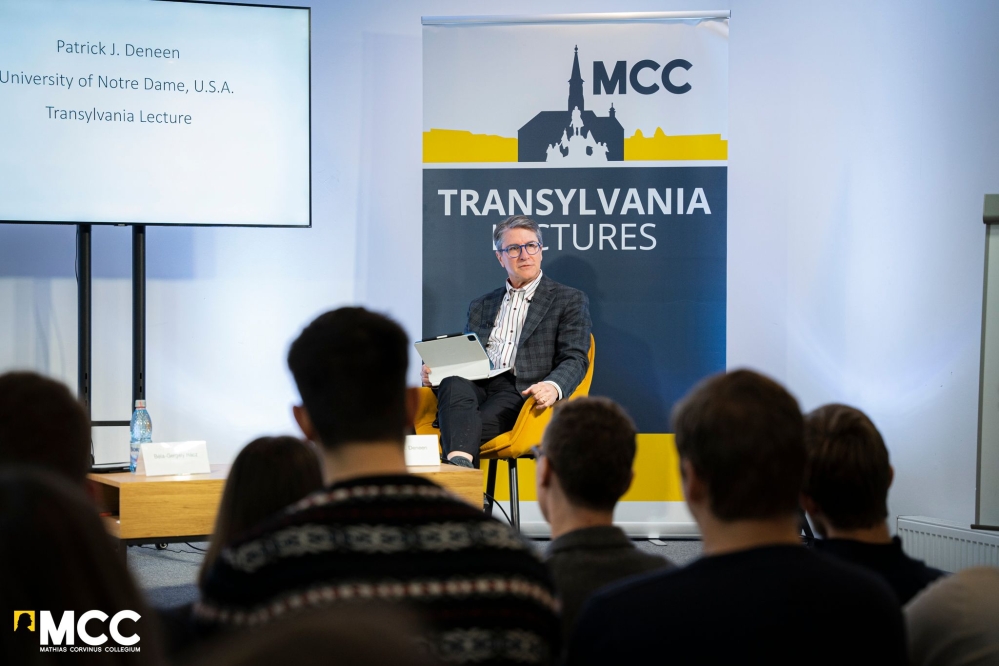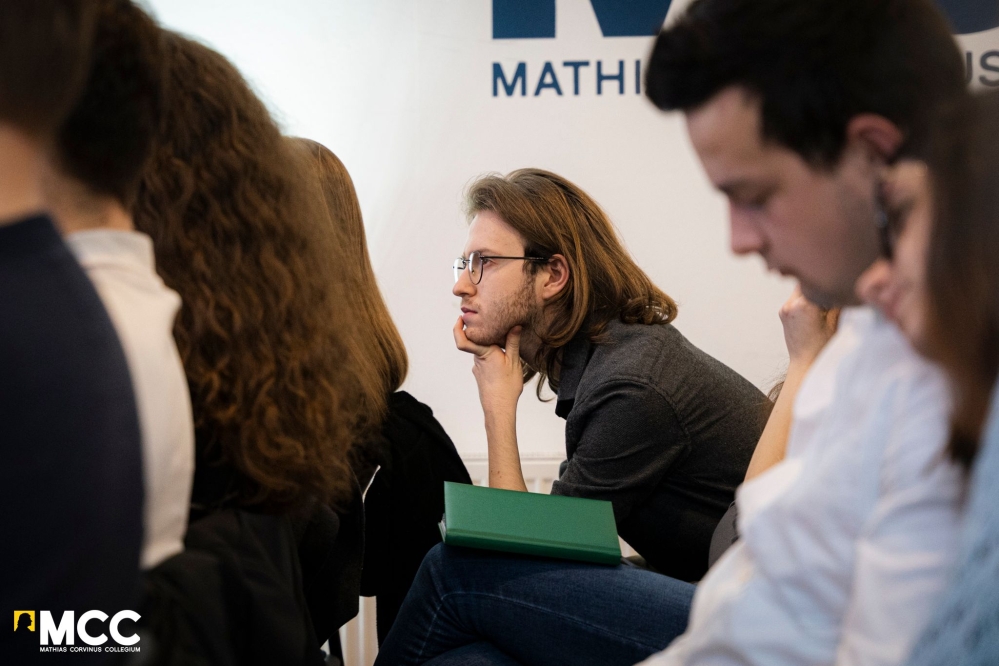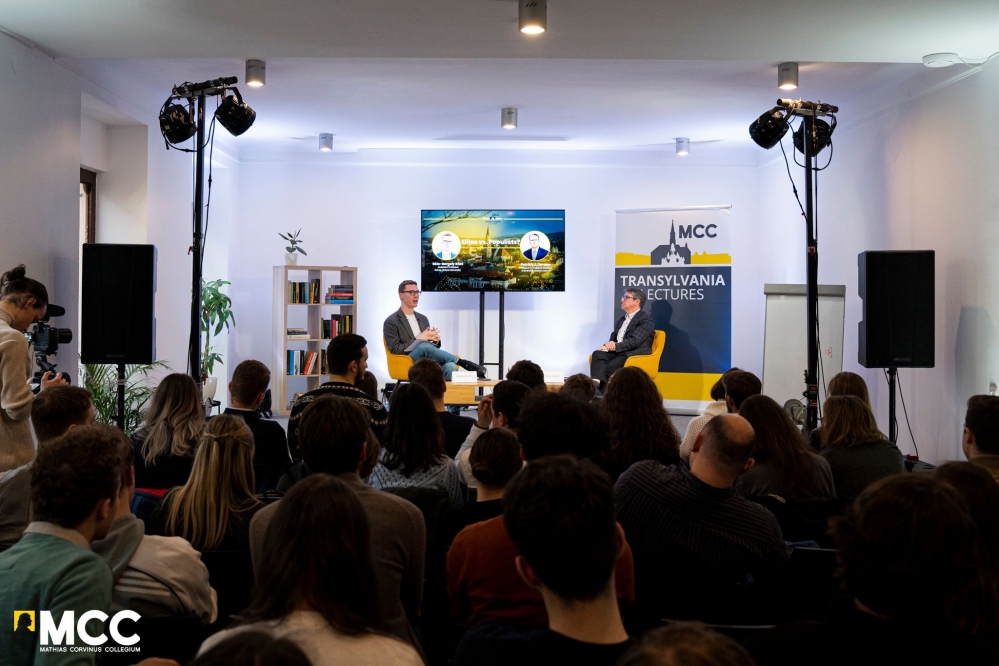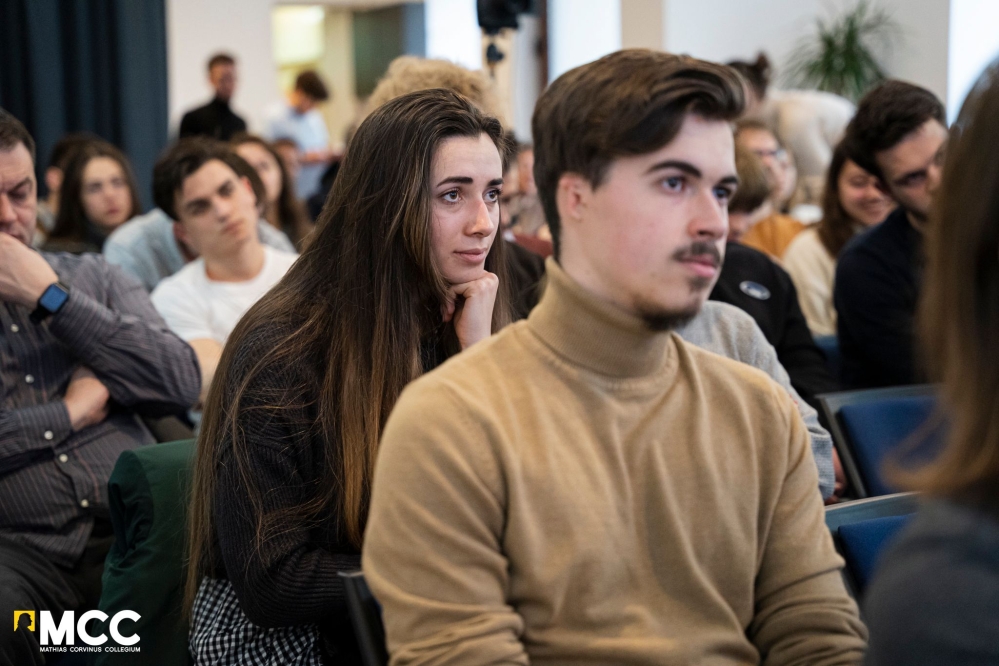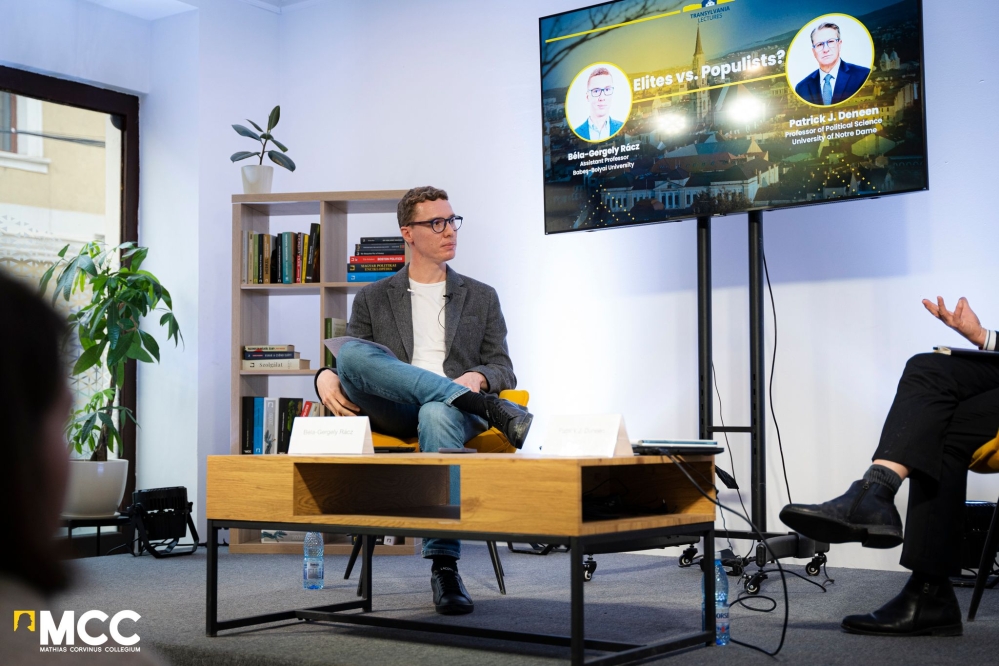Reading time: 3 minutes
Mathias Corvinus Collegium (MCC) hosted a renowned US political scientist and philosopher at the latest Transylvania Lectures event. On Thursday, 16 March, Patrick J. Deneen gave a public lecture at the MCC center in Kolozsvár/Cluj Napoca.
Patrick J. Deneen, Professor of Political Science at the University of Notre Dame shared his thoughts on elites vs. populists at the MCC Transylvania Lectures. He is the author of several books, including Why Liberalism Failed, which has been translated into twenty languages (including Hungarian). He was Special Advisor and Speechwriter to the Director of the United States Information Agency from 2005 to 2007. He has also taught at Princeton University and Georgetown University. At the event, Anna Bárdos, a student of the MCC University Program, welcomed the participants. The moderator of the discussion was Béla-Gergely Rácz, Assistant Professor of Economics at Babeș-Bolyai University, lecturer at MCC.
Patrick Deneen first went back to the roots of liberalism, presenting the philosophy of John Locke and John Stuart Mill. Locke was a proponent of materialism, his philosophy was that property is not hereditary, but can be achieved through diligence and hard work. In his time, a new elite began to rise in the United States, the opposite of the old aristocracy, and Locke’s anticipation was that it would be industrial and rational. Locke expected the emergence of a revolutionary, creative and changing elite. John Stuart Mill continued Locke's work with progressive liberalism, and saw freedom in complete autonomy, in breaking away from inherited customs and traditions, from old institutions (church, family, communities, civil organisations). This philosophy still dominates the Western world today. The speaker pointed out that the dividing line between classical and progressive liberalism explains the last fifty years’ American politics.
Karl Marx responded to these philosophies by considering the people who rebelled against the old system, against bourgeoisie and capitalism, as the real revolutionaries. But the 20th and 21st centuries proved that the elites described by Locke and Mill were more successful than Marx's ideas. They did not change people by force, but succeeded as society transformed itself. In recent years, a populist revolt has has risen that wants to destabilise the old liberal elite, which now stands in opposition to the people. The argument that there is prosperity in the capitalist system is becoming less and less tenable, because the gap between social classes is widening and there is a sense of degradation among the economically disadvantaged. Patrick Deneen argues that currently the elites do not represent populist interests, and that change is to be expected in American politics.
In his 2018 book, the philosopher argues that liberalism has failed precisely because of its success. It has shaped the world so that people live as autonomous, self-centric individuals, alienated from their fellow human beings and dependent on technology; all of which has distorted human life and created a fragmented, lonely society. Patrick Deneen's ideas have led many to see him as anti-American and illiberal, but he is committed to bringing back the old traditions of solidarity. He sees the solution in a society based on care, commitment and human relations. He believes that, although the world and our environment teach us to pursue self-interest, human beings are social beings capable of doing good.
MCC invites foreign lecturers, academics and prominent thinkers of today's social, political and economic life to the monthly Transylvania Lectures discussions. The public events take place at the MCC center in Kolozsvár, where anyone interested can attend and ask questions to the invited experts. Botond Talpas, general director of MCC Transylvania, said about the event: The English-language lectures aim to connect MCC with interested members of local communities, while providing food for thought, questioning and open debate on the divisive issues of our time.
